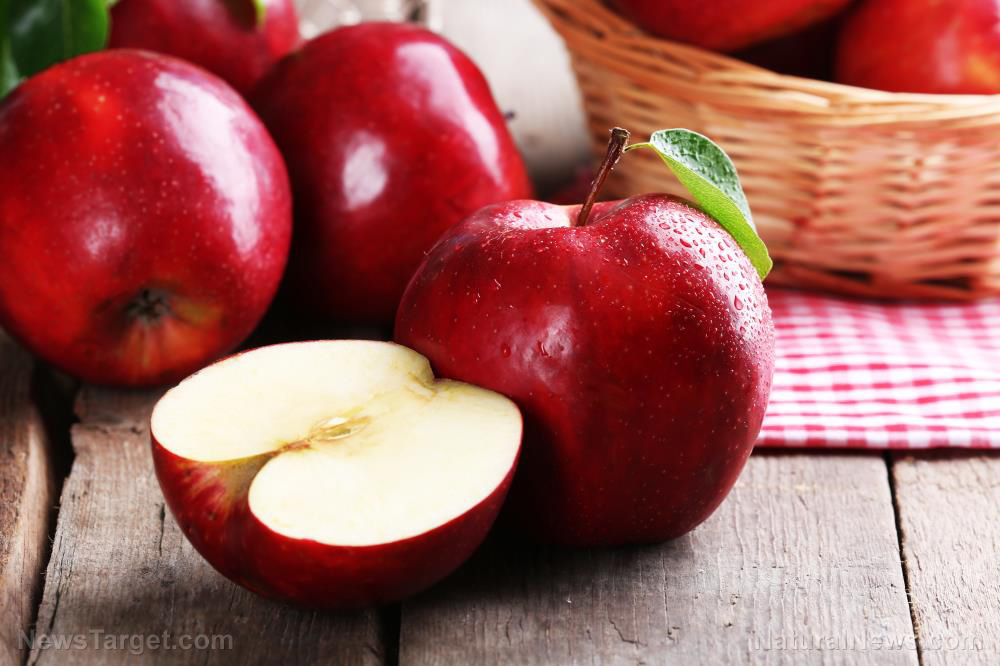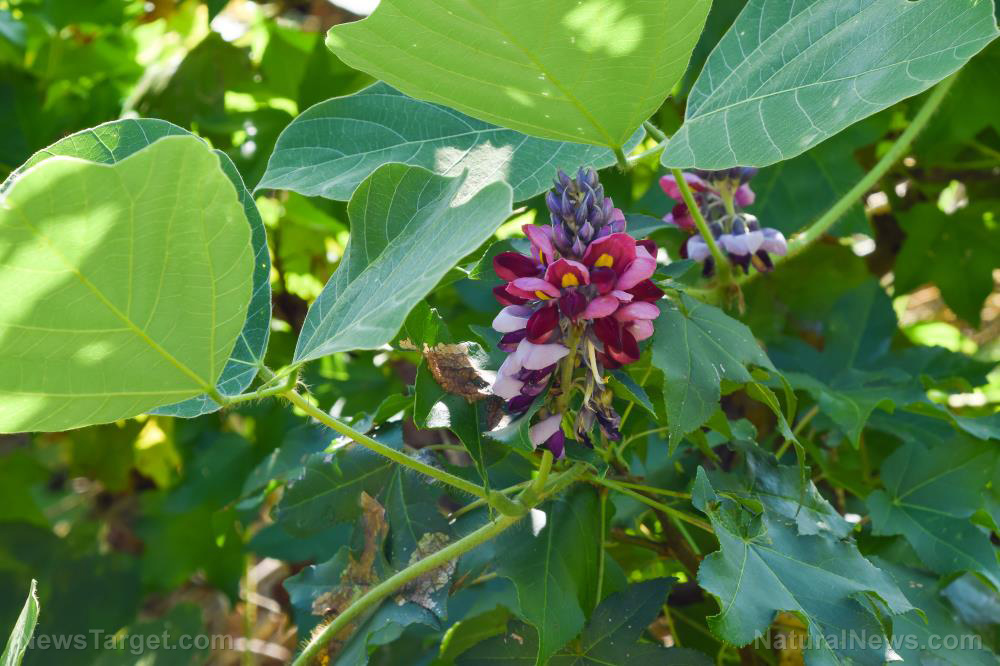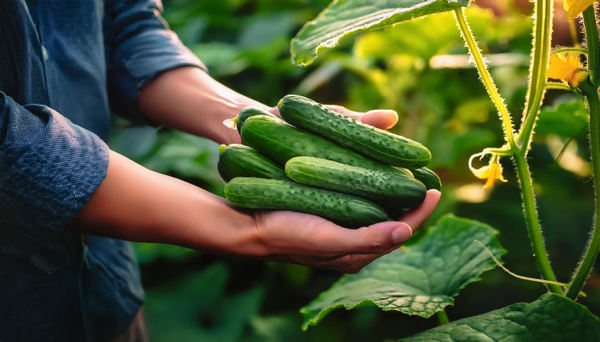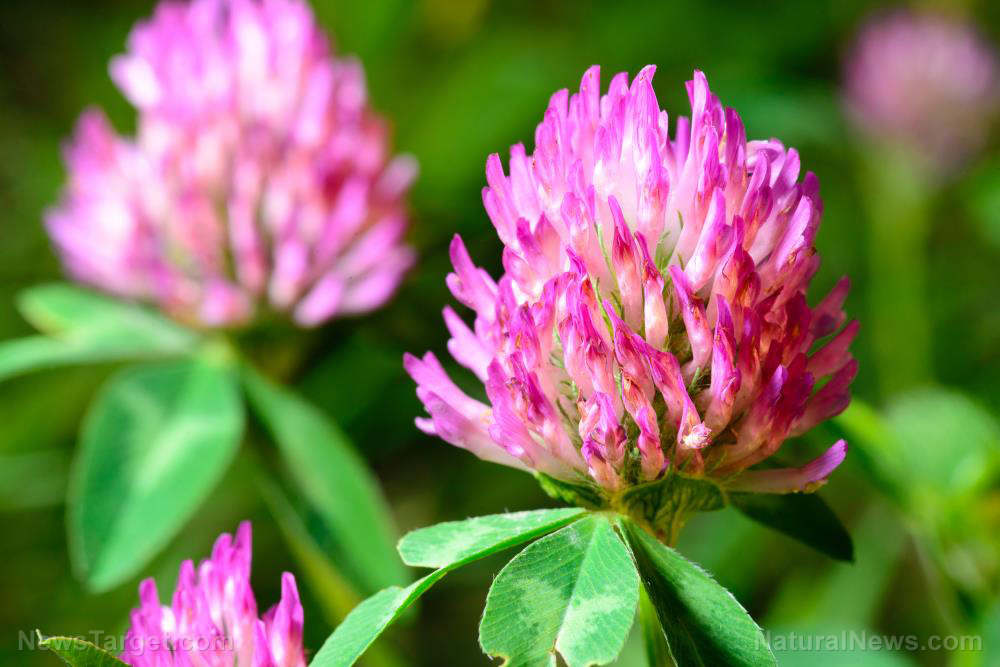Berries: A top anti-diabetes food
07/29/2025 / By News Editors
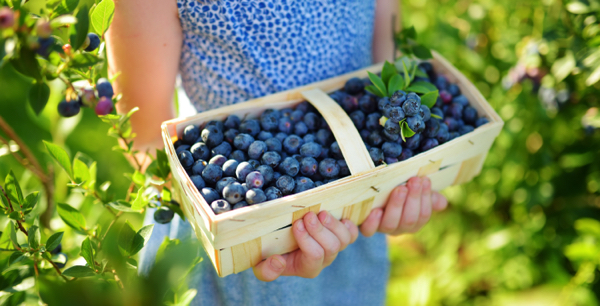
Berries aren’t called superfoods for nothing. A review covering 336 scientific articles on these fruits has shown that berry consumption can go a long way in preventing and managing Type 2 diabetes and its complications
(Article republished from GreenMedInfo.com)
From the hunter-gatherers of ancient times to modern humans, berries hold incredible health benefits that only get further proven and respected over time. Coming in different varieties and forms like raw, frozen and dried, these compact and versatile fruits can be easily incorporated into your diet year round.
Berries are chock-full of antioxidants, which are substances that help prevent the oxidation associated with inflammation, aging and the development of diseases such as heart disease and cancer.[i]
They are deemed “promising functional fruits” for their distinct therapeutic contents of anthocyanins, flavonoids, flavanols, alkaloids, organic acids and more — polyphenols that may be beneficial for oxidative stress, obesity, high blood pressure and diabetes.[ii]
In studies, polyphenols along with other berry components such as fiber and micronutrients have been linked with better cardiovascular health.[iii] Each type of berry has its specific “superpower,” from cranberry’s efficacy in treating and preventing urinary tract infections to strawberry’s outstanding vitamin C content to black currant’s support for brain power and efficacy against rheumatoid arthritis.
Polyphenol-Rich Berries Deter Diabetes and Its Complications
An August 2020 review discussed how consuming berries can prevent diabetes and its complications.[iv] Analyzing the differences in glucose and insulin levels after food intake in diabetic subjects, the reviewed studies found that consuming berries can be a reliable method to prevent and manage hyperglycemic and hyperlipidemic states.
The researchers examined berry consumption and the management of Type 2 diabetes by searching various scientific databases using keywords such as “berry consumption and diabetes,” “berries and high-glycemic diets” and individual berry names. This yielded 336 articles deemed relevant for the review.
Various berries have been probed for their potential diabetes benefits, including blueberries, bilberries, cranberries, raspberries, mulberries, lingonberries, blackberries, strawberries, goji berries, acai berries, chokeberries, black currants and maqui berries. The review showed berries’ various mechanisms of action against diabetes, including the following:
- Anthocyanins promoted glucose uptake and metabolism as well as inhibited weight gain and pro-inflammatory responses
- Berry intake led to improvements in insulin sensitivity and lowering glucose
- Berry consumption favorably altered gut microflora, thus assisting in diabetes management
The primary potential health-promoting bioactive compounds in berries include the following:
|
Glycosides |
Glucosides |
Catechins |
Epicatechins |
|
Quercetin |
Myricetin |
Flavanolds |
Flavonols |
|
Caffeic acids |
Phenolic acids |
Polysaccharides |
What will it take to obtain the healthful effects? According to the reviewed papers, the daily recommended dose of whole berry varies from 200 to 400 grams (0.875 to 1.69 cups) of berries for a 70-kilogram (154 pound) middle-aged person.
It’s fairly established in studies that the body needs less insulin for sugar balance after a meal if berries are consumed as well. A Finnish study among healthy women found that adding berries to white and rye bread significantly reduced the post-meal insulin spike. Strawberries, bilberries, lingonberries and chokeberries were considered effective.[v]
Other Berry Benefits Worth Noting
Berries work their wonder not just on diabetes but also on a wealth of other health issues:
- Hair loss — Antioxidant-rich and anti-inflammatory foods may help reverse hair loss suffered by both men and women. Some of those with the highest antioxidant potential include Indian gooseberry, bilberries, fresh black currants, blackberries, cranberries, crowberries, goji berries, strawberries and red sour berries.[vi]
- Anti-aging and improved brain health — An analysis of data on berry intake showed that mental decline slowed for women over age 70 who regularly consumed strawberries or blueberries.[vii] Subjects who had greater intakes of the berries had slower mental decline, with the estimated effects translating to a delay in cognitive aging by about 1.5 to 2.5 years.
- Cardiovascular wellness — A study published in the Journal of the Academy of Nutrition & Dietetics involving postmenopausal women concluded that eating 22 g of blueberry powder every day for eight weeks reduced blood pressure and arterial stiffness.[viii] This was likely due to increased nitric oxide production.
- Oral cancer and colorectal cancer — Animal studies have suggested that black raspberries may inhibit the growth of oral cancers.[ix] In a study on patients with biopsy-confirmed oral squamous cell carcinomas, researchers confirmed that the fruit may be effective for oral cancer chemoprevention, reducing adverse gene expression of the condition. Black raspberry may also help colorectal cancer patients including by altering amino acid metabolism, energy and lipid metabolism.[x]
- Breast cancer — Previous studies have associated a high intake of fruit during adolescence with a lower risk of breast cancer.[xi] In separate research, anticancer activity and lack of toxicity against normal cells indicate a chemopreventive potential of Goji berries in breast cancer treatment.[xii]
Read more at: GreenMedInfo.com
Submit a correction >>
Tagged Under:
alternative medicine, antidiabetes, berries, food cures, food is medicine, food science, fruits, functional foods, health science, natural health, organics, phytonutrients, prevention, research, Xpost
This article may contain statements that reflect the opinion of the author
RECENT NEWS & ARTICLES
consumerwellness.info is a fact-based public education website published by consumerwellness.info
All content copyright © 2023 by consumerwellness.info
Contact Us with Tips or Corrections
All trademarks, registered trademarks and servicemarks mentioned on this site are the property of their respective owners.



